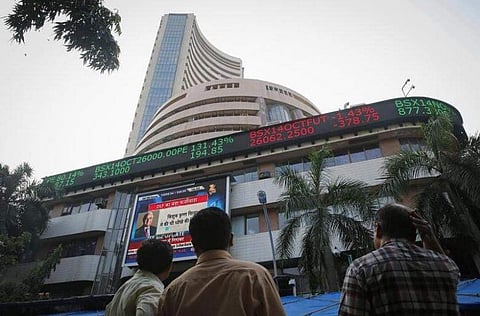Sensex may touch 80,000 by Dec 2023: Morgan Stanley
NEW DELHI: India’s equity market continues to hit new highs despite various global concerns, including civil unrest in China that led to a noticeable decline in key Asian markets. Led by sharp buying in index heavyweight Reliance Industries (RIL), the 30-share Sensex ended 211 points higher at 62,504 on Thursday, while its broader peer Nifty 50 ended above the 18,550 level after touching a new all-time peak of 18,614. This rally, according to global brokerage Morgan Stanley, will continue as it expects Sensex (50% probability) to hit the 68,500 mark by December 2023. In case of a Bull run (30% probability), Sensex may even hit the 80,000 mark, the brokerage said.
“We assume that the effects of the Ukraine-Russia conflict (elevated commodity costs) do not spill over into 2023, domestic growth continues its strong path as per our forecasts, and the US does not slip into a protracted recession. Government policy remains supportive, and the RBI executes a calibrated exit. Sensex earnings compound 22% annually through F2025E,” said analysts at Morgan Stanley while projecting Sensex at 68,500 by December 2023.
Morgan Stanley said Sensex could touch the 80,000 milestones if India is included in the global bond indices, resulting in nearly $20 billion of inflows over the subsequent 12 months and commodity prices including oil and fertilizer correct sharply. Earnings growth, for this to happen, needs to compound 25% annually over F2022-25E, it said. There is also a 20% probability of a sharp correction with the BSE Sensex going down to 52,000.
“Oil and other relevant commodity prices (especially fertilizers) remain elevated, and RBI ends up tightening aggressively to protect macro stability. A protracted recession in the developed world drags down India’s growth. Sensex earnings compound 18% annually over F2022-25E, but equity multiples de-rate to reflect poor macro conditions,” the analysts noted.
Morgan Stanley’s bullish view of the domestic market comes at a time when most rating agencies and financial institutions have lowered India’s FY23 and FY24 gross domestic product (GDP) growth forecast, as they feel higher interest rates and slowing global trade are major headwinds.

